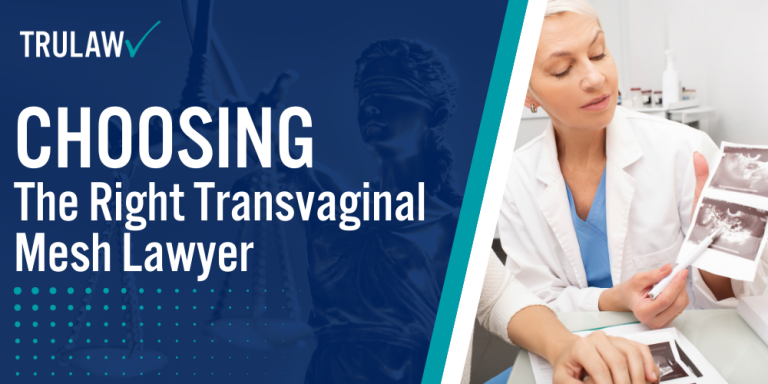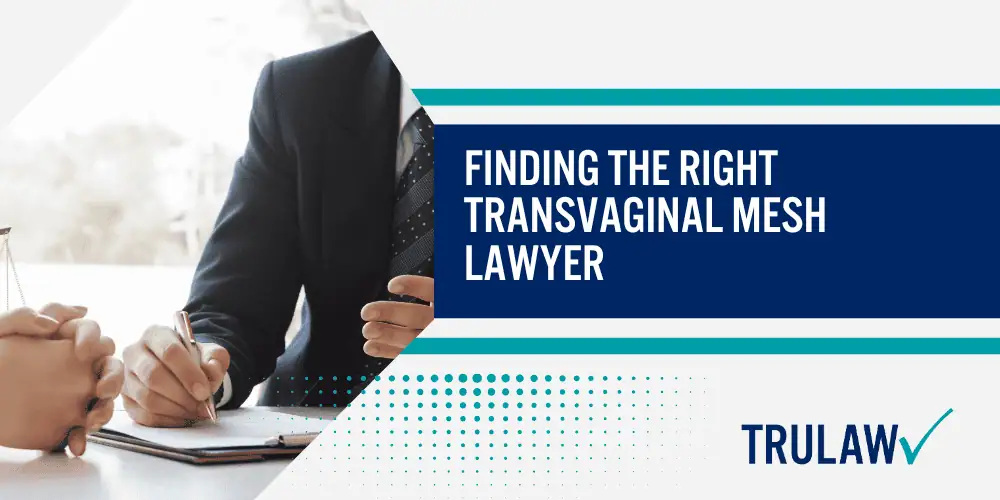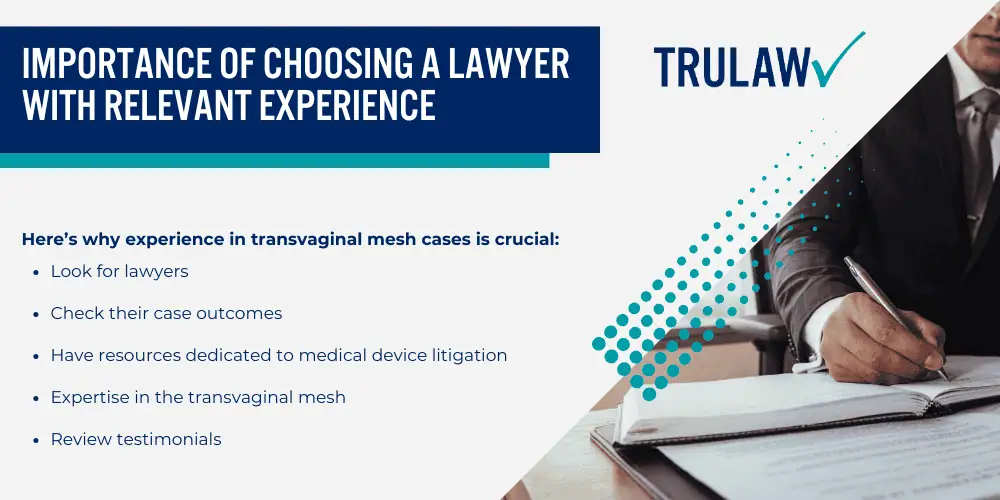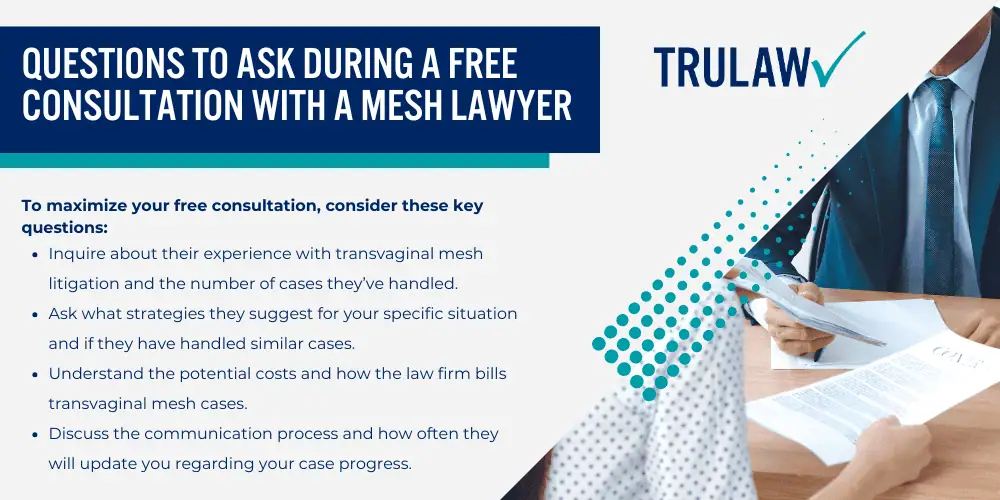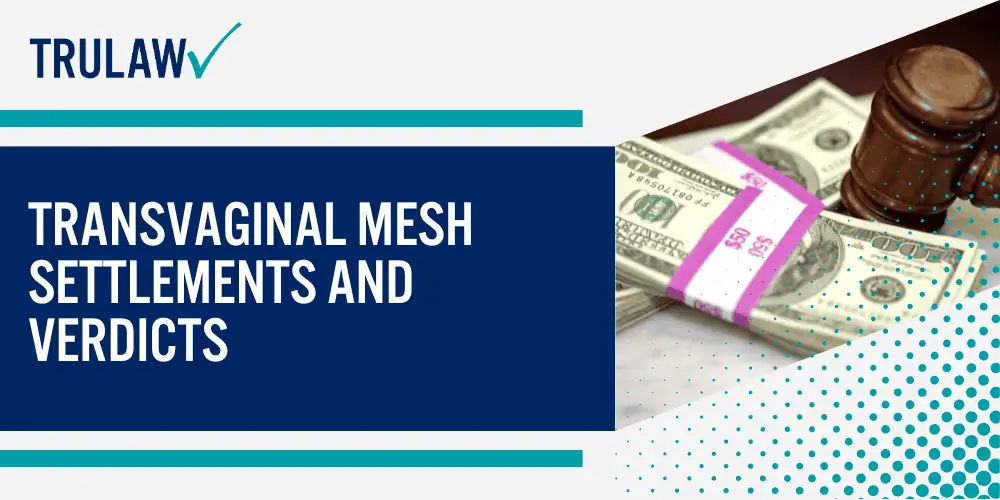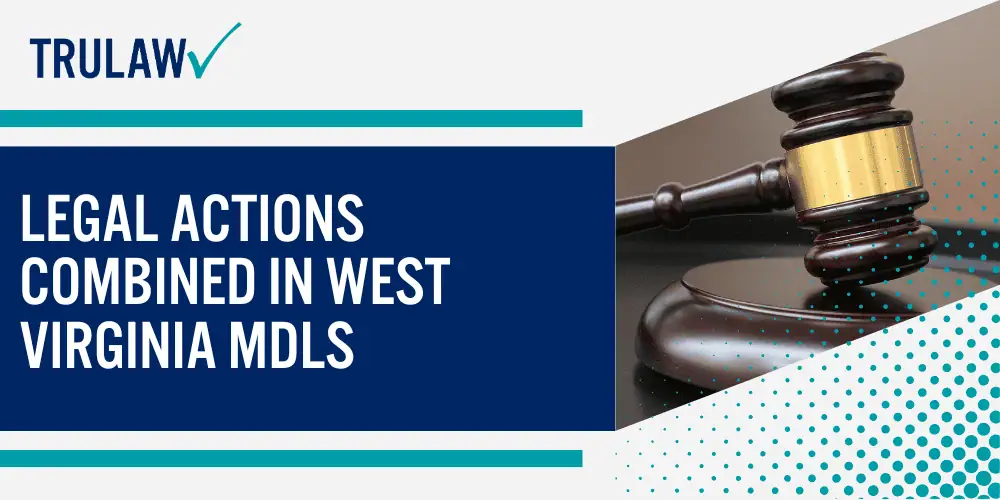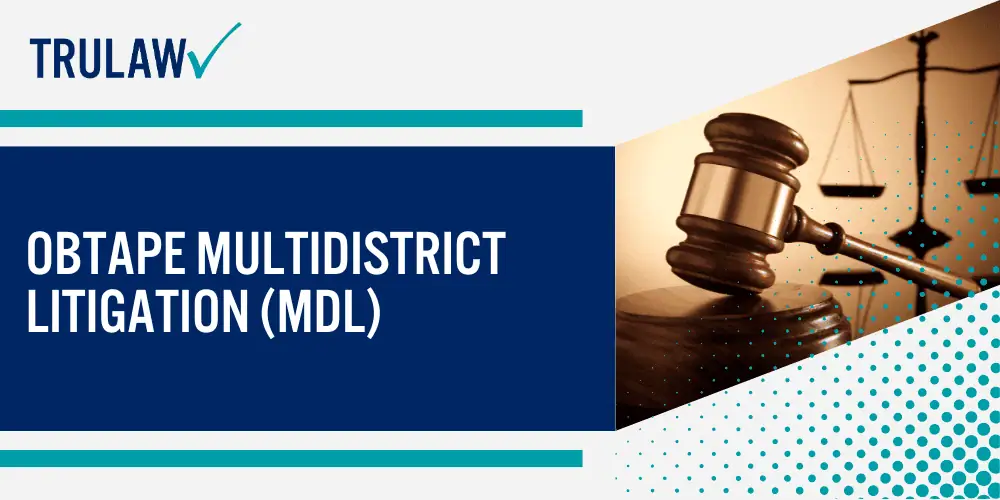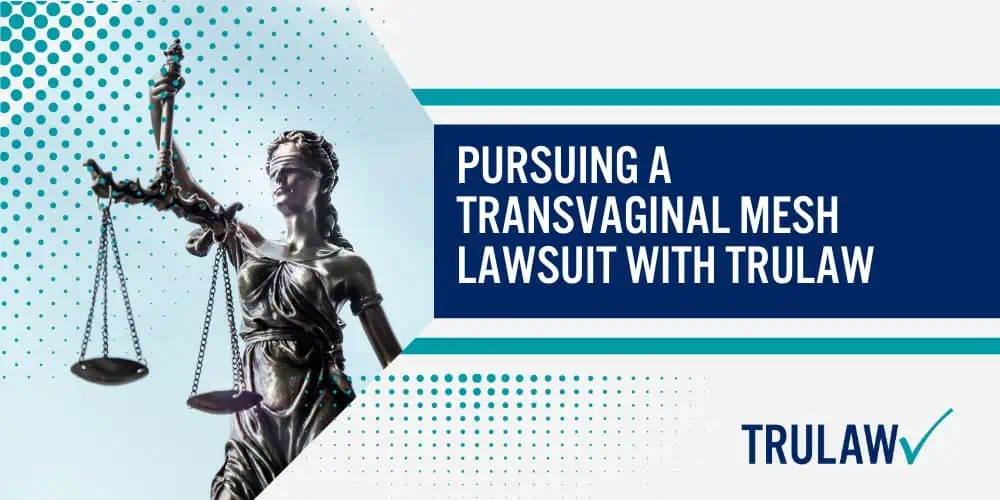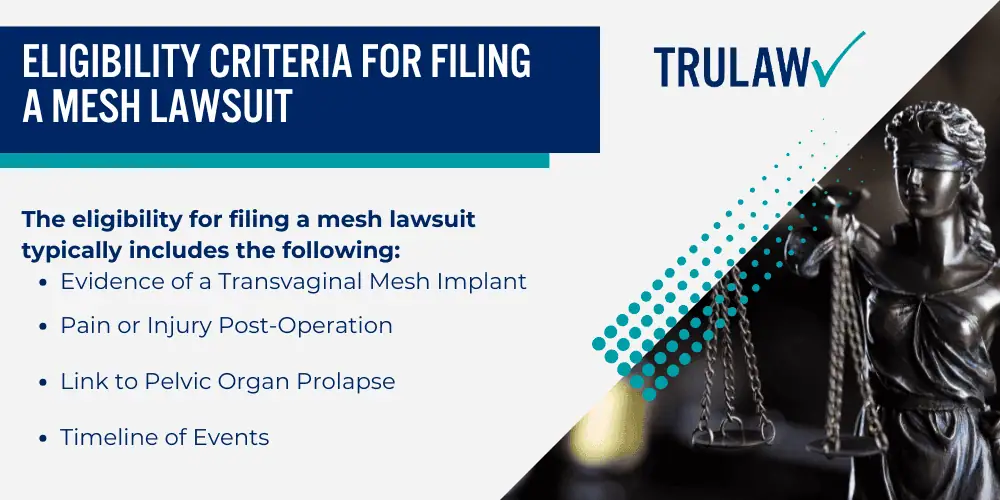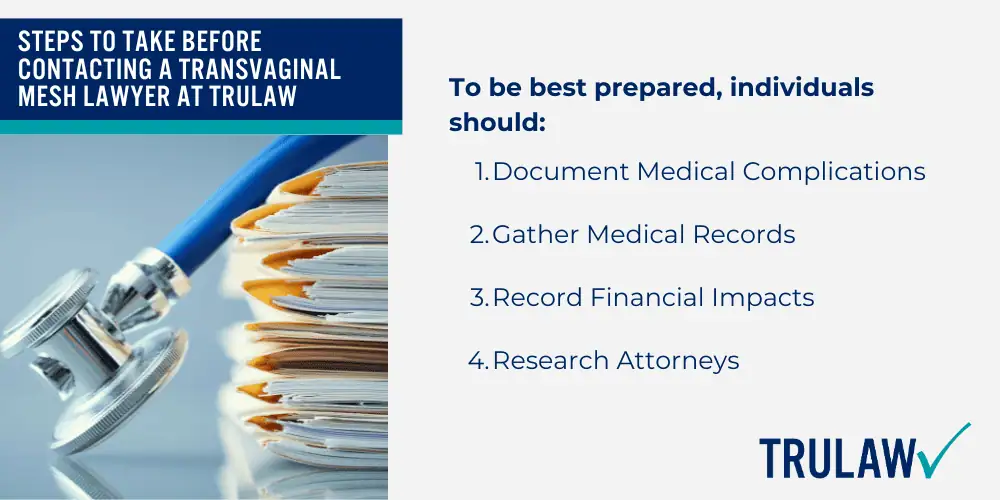Transvaginal mesh manufacturers face serious allegations concerning the safety and marketing of their mesh products.
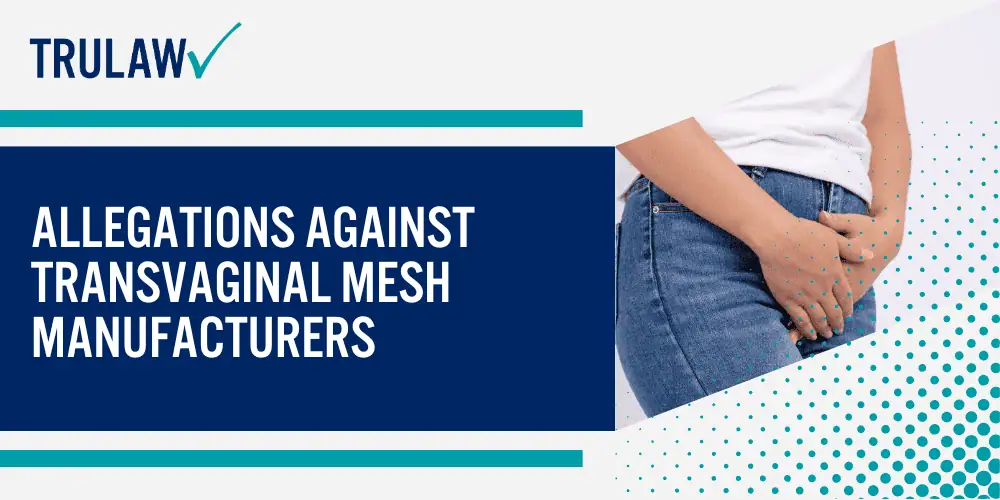
These claims have prompted significant legal scrutiny and settlements.
Intentional Misleading of FDA, Medical Community, and Patients
Transvaginal mesh producers are accused of providing incomplete information to the FDA regarding the efficacy and potential hazards of their surgical mesh devices.
The following points outline specific allegations:
- Manufacturers are supposed to present all relevant data to the FDA but allegedly withheld negative outcomes or complications.
- They are said to have promoted mesh products aggressively, minimizing the risks associated with their use.
- Communications to the medical community and patients about the safety and utility of these devices were purportedly distorted.
- Allegations suggest a failure to update the FDA and healthcare professionals as new risk information becomes available.
Failure to Properly Test and Research Risks of Mesh Products
There are further claims that the medical device companies did not conduct sufficient research to understand the risks of mesh products.
These allegations include:
- Insufficient pre-market testing to determine the long-term effects of surgical mesh on patients.
- A lack of large-scale clinical trials could have highlighted potential complications before these products reached the market.
- Reports indicate that manufacturers ignored or did not fully explore preliminary research suggesting adverse effects of their devices.
- Transvaginal mesh complications led to patient harm that opponents argue could have been prevented with more thorough testing.
Injuries Claimed in Transvaginal Mesh Lawsuits
Victims seeking legal redress in transvaginal mesh lawsuits typically report a range of serious health issues.
The complications arising from these implants can have a profound impact, influencing various aspects of health and quality of life. 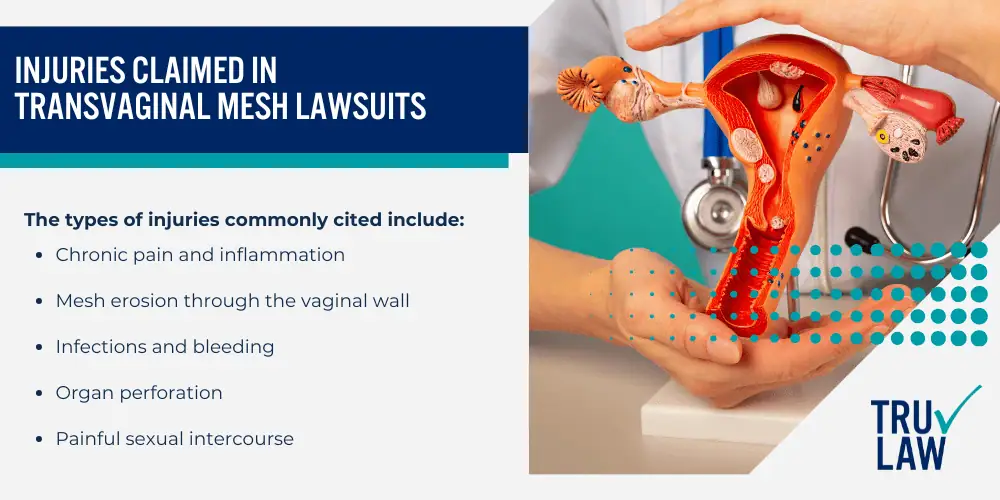
The types of injuries commonly cited include:
- Chronic pain and inflammation
- Mesh erosion through the vaginal wall
- Infections and bleeding
- Organ perforation
- Painful sexual intercourse
